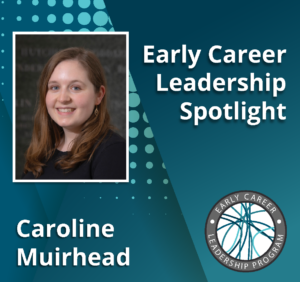GSA President Hugo Bellen announces a new seminar series on tools and resources for exploring gene function across organisms.
Some of us are worried about the future of the research enterprise, especially funding support for science in our favorite model organism. Why worry? One of the main drivers of this concern is that some believe our work is not directly relevant to human biology. This is often based on the idea it is difficult to quickly translate basic discoveries into directly applicable medical paradigms. Yet, the model organisms that many of us study have been the driving force for most biomedical discoveries. More than 90% of the Nobel prizes in Medicine or Physiology in the past 40 years have been awarded for research carried out in model organisms such as mice, rats, Xenopus, worms, and flies. These include the discovery of monoclonal antibodies (mouse), RNAi technology (worms), CRISPR technology (bacteria), cell cycle and cancer (yeast), signaling pathways, and development (flies), and so many others. Such discoveries in fundamental biology have propelled advances in medicine, and I believe they will remain at the forefront.
Genetics offers numerous important features for such advances, because genetic manipulations are the most elegant type of manipulations for answering biological questions. Is there a less intrusive experiment than changing a single nucleotide among millions or billions of bases and asking: what are the in vivo consequences? The answer is a flat no in my opinion!
Despite the obvious relevance of our work to human biology, some are averse to a human-centric vision of research for good reasons, as nicely illustrated by the examples above. Diseases should not per se dictate our research because we don’t yet know where the next breakthrough will come from. Serendipity and curiosity are major players in discovery.
Yet, I see no reason not to search for a middle ground. This is especially the case in the area of genetics, as the evolutionary conservation of genes and their function has been critical to understanding most biological processes across organisms. Forward genetic screens and evolution-based studies in model organisms have led, and will continue to lead, to discovery of many basic aspects of biology as they are unbiased and probe a very diverse set of biological functions.
Doing biological research is not always a forced choice between creating fundamental knowledge or developing targeted medical applications. Both outcomes can result from the same efforts. Indeed, human genetics has advanced basic biology, from Archibald Garrod helping renew the understanding of Mendel’s laws by studying a rare disease, to prion biology revealed by Creutzfeldt-Jakob disease. The last ten years have seen remarkable changes as another set of scientists—human geneticists—have joined the cohort of screeners. They, like many of us, observe phenotypes (of patients) and attempt to identify the causative genes. This approach has gained tremendous strength with the ability to sequence all exomes (WES) and genomes (WGS). WES or WGS of an affected individual and a few direct family members allows the identification of variants in one or a few genes that may be causative, especially for very rare diseases.
Surprisingly, more than 50% of the orthologues of these genes have been poorly characterized in vivo in any organism, leaving a wide knowledge gap. Because an estimated 6,000–13,000 rare disease associated genes remain to be discovered, we have a full plate of genes and variants to tackle. Note that more than 80% of new human disease genes that have been discovered in the past few years are conserved in worm, flies and, more obviously, in vertebrates.
How can a scientist study the function of these genes, especially when the phenotypes associated with the loss of these genes in model organisms may be more subtle than many of the genes that have been characterized already? One productive approach is to generate clean loss-of-function tools using state-of-the-art genetic technologies and then to perform systematic phenotyping at many different levels, including transcriptomics, metabolomics, histological screens, as well as behavioral screens of the many collections of mutants available in yeast, worms, flies, fish, and more recently, mouse.
Another approach is to team up with other model organism researchers who are performing similar screens and share data to identify genes and pathways to help define their function.
A third approach is to identify researchers who are attempting to define the function of certain genes based on their scientific interest but are not even aware that others are interested in orthologues in other species. The latter challenge can now be solved if open communication and collaborative ventures are explored at the onset. For example, a human geneticist may identify an evolutionarily conserved gene that has been poorly characterized in model organisms and may be interested in collaborating with a model organism researcher. Alternatively, a model organism researcher may have identified a conserved gene and wonder if a human geneticist has identified patients that carry variants in the orthologous human gene. Recent databases and online platforms now allow scientists to explore these unpublished data, connect, and explore or initiate collaborations. These include GeneMatcher, ModelMatcher, and numerous international ventures designed to match researchers and clinicians with common interests.
GSA is exploring ways to introduce the model organism community to these approaches. In addition, there are now many databases that attempt to centralize knowledge from many model organisms to help geneticists explore gene function across evolution, such as the Monarch Initiative and the Alliance of Genome Research, as well as databases to integrate clinical and scientific databases such as MARRVEL. GSA will organize a series of seminars this year to introduce these opportunities and provide tips and tutorials to help explore the available websites and databases. We believe that these seminars will be useful to investigators at all career stages and across different model organisms, as well as for human biologists. We hope this will add a new dimension to research, reveal unanticipated phenotypes, speed up discovery, allow new funding opportunities, and lead to the discovery of new fundamental aspects of biology.















